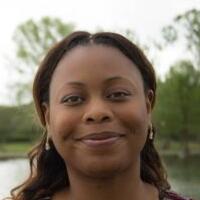From “Environmental Philanthropy?”… to… “This is the Career for Me.”
February 12, 2018
Prior to becoming a 2017 Environmental Fellow, the concept of “environmental philanthropy” was foreign to me. In fact, my first thoughts upon receiving an email from a friend regarding this opportunity was “Environmental philanthropy? What is that?” I would like to believe that I am an academic. When there are topics that are of interest to me, I research, question, and attempt to attain as much information as possible. Naturally, my first step upon receiving the email was to google the term expecting the search to return a dedicated Wikipedia page that would provide me with a simple, concise definition. Instead, the search returned several different pages that had some variation of the words “grants” or “giving” in the title. Based on this information it was logical to conclude that “environmental philanthropy” was essentially giving funds to environmental causes. Assuming this to be all there was to it, I did not understand how this could be a career. However, the focus of the fellowship, “diversifying the environmental field, in order to create a more equitable and inclusive environmental workforce” intrigued me. The environmental field (academia, advocacy, political, etc.) has traditionally been a white space, which is at odds with reality, because poor black and brown people are disproportionately more likely to be the victims of environmental degradation and experience adverse health outcomes as a result.
As fellows, we were placed with non-governmental organizations, nonprofits, policy institutes, and foundations throughout the country. In my case I was placed with the New England Grassroots Environment Fund in New Hampshire. I did not have many expectations going into the fellowship, but I wanted to absorb and learn all that was possible. I will admit, I had some reservations, the main one being, “How am I, an African American student, supposed to explain to professionals, that diversity in this field (a field that I just became aware of) was important?” I was pleasantly surprised when I met the staff and realized that I did not need to be the diversity advocate. After one conversation, it was apparent, that while working there, my role would not be to convince them that the voices of the marginalized are important. It wasn’t my role, because it was not needed. As a whole, the New England Grassroots Environment Fund “got it.”
For my summer project, I worked specifically on environmental justice and equity issues and how they were or were not incorporated into projects that addressed land and water issues throughout the New England area. While conducting this research, I got a first-hand view of how void the field is of people of color. When confronted with this information, many organizations provided some variation of the response “They (people of color) aren’t going into these types of fields.” This standard response acknowledges that the field is void of people of color, and inadvertently absolves those in the field of the responsibility to actively recruit and engage diverse voices. Consequently, many of these organizations were not specifically considering environmental justice or equity when addressing land and water issues.
One space this summer where I was able to see the connections between equity, justice, and environment was at the Environmental Grantmakers Association Fall Retreat. This was my first retreat and I did not know what to expect, except, that outside of the fellows within my group, there would not be many people of color. There were approximately 500 attendees, with less than 100 of those being people of color. This is a relatively small percentage, however, the issues that disproportionately affect black and brown people, were on full display. Virtually every speaker addressed issues through the lens of environmental justice and equity, social issues, or racism. Many speakers expounded on how important it is to have diverse voices not only at the table but given equal weight as well. All of the speakers spoke with conviction and passion. They were not reserved in their delivery or rhetoric even though they were presenting to a room full of grantmakers, many of whom they more than likely have requested funds from. I greatly appreciated this because it showed to this small segment of the field, that black and brown voices are important, they are needed, and most important, they/we are here.
Prior to this fellowship, I knew I wanted to work on environmental justice and equity issues. I knew that I wanted to work with traditionally under-represented communities. Coming from the world of academia, I assumed that the way to do this was through academia and research. I, indeed believe there is a place for this, but participating in the fellowship showed me that while it is vital to get resources to the community, it is essential that the environmental field reflects the community that it serves. That is what I hope to bring to the field of environmental philanthropy. I hope that when the community sees me, it sees themselves. I hope that those currently in the field, recognize the importance of diverse voices and actively work to engage these voices and make these spaces welcoming. The excuse that “they are not pursuing these types of careers” is no longer valid. We Are Here!
About Ashley Bell
